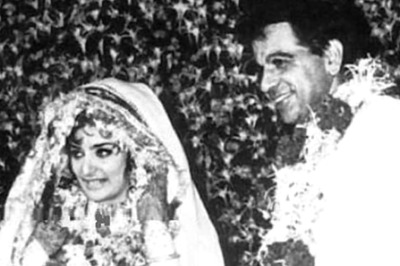
views
OKLAHOMA CITY: The Oklahoma Court of Criminal Appeals on Thursday found a U.S. Supreme Court ruling limiting state jurisdiction for crimes committed on tribal reservations by or against tribal citizens does not apply retroactively.
The ruling could affect hundreds of state convictions that the court previously overturned, many of which resulted in federal charges and convictions, including murder convictions. Oklahoma inmates who thought they would get a new trial in federal court based on the July 2020 decision known as McGirt, including some on death row, could remain in state prison with their sentences upheld.
Federal convictions would not be affected, according to Northern District of Oklahoma assistant U.S. Attorney Kristin Harrington.
This does not void federal convictions, the state and federal governments are separate sovereigns and can charge and convict people independently on the same charges, Harrington said.
On Thursday, the Oklahoma Court of Criminal Appeals reinstated the second-degree murder conviction on state charges of Clifton Merrill Parish. His conviction had been overturned by a state judge in April based on McGirt, in which the Supreme Court said Oklahoma lacks jurisdiction for crimes committed on tribal reservations in which the defendants or victims were tribal citizens.
Debra Hampton, Parishs attorney, called the latest ruling devastating and promised an appeal.
Absolutely, were going to take it all the way to the (Supreme Court), Hampton told The Associated Press.
I think the Oklahoma Court of Criminal Appeals issued this opinion based upon what they wanted the outcome to be. Its just sickening, Hampton said.
Pushmataha County District Attorney Mark Matloff had appealed the initial decision on Parish, arguing that the Supreme Court did not specify if McGirt could be applied retroactively.
Matloff did not immediately return a phone call seeking comment.
Thursday’s ruling, written by Judge David Lewis, noted that the Oklahoma Court of Criminal Appeals has already overturned several convictions, including capital murder cases, but said it did so without having the federal appeals court ruling drawn to its attention.
Exercising our independent state law authority to interpret the remedial scope of the state post-conviction statutes, we now hold that McGirt, and our post-McGirt decisions … shall not apply retroactively to void a conviction that was final when McGirt was decided, Lewis wrote.
Any statements, holdings or suggestions to the contrary in our previous cases are hereby overruled, according to the order.
Parish, a member of the Choctaw Nation, was convicted of second-degree murder in the 2010 beating and shooting death of Robert Strickland within the historic Choctaw Reservation. He has been charged in federal court with murder in the case and has pleaded not guilty.
The appeals court opinion said Parish’s conviction became final in 2014, and that he failed to ask for a rehearing or appeal to the U.S. Supreme Court. His appeal based on McGirt came in August 2020.
Oklahoma Attorney General John O’Connor last Friday asked the Supreme Court to overturn its ruling in McGirt. Gov. Kevin Stitt and O’Connor issued a joint statement Thursday celebrating the ruling.
I am pleased that the court agreed that retroactively applying McGirt to tens of thousands of cases would unnecessarily traumatize victims and give dangerous criminals opportunities to fall through the cracks, Stitt said.
O’Connor said the ruling restores justice to crime victims and their families.
There are thousands of cases that would have to be retried if the State had lost this case. In many of those cases, the crimes were committed long ago. Witnesses may be gone. Evidence may be lost. Re-prosecution might be barred by statutes of limitations, O’Connor wrote.
Numerous people, including Jimcy McGirt for whom the Supreme Court decision is named, have been convicted on federal charges related to their cases since the July 2020 ruling.
Acting Northern District U.S. Attorney Clint Johnson said the ruling affirmed tribal reservations were never disestablished and means convictions prior to the McGirt ruling remain in place
My office will continue to prosecute crimes that have not been adjudicated in State court or occurred after the McGirt decision,” Johnson said in a statement.
___
This story has been corrected to show that Kristin Harrington and Clint Johnson are U.S. attorneys in the Northern District of Oklahoma, not the Eastern District.
Disclaimer: This post has been auto-published from an agency feed without any modifications to the text and has not been reviewed by an editor
Read all the Latest News, Breaking News and Special: Live-updating IPL 2022 auction tally | IPL Mega Auction Live Updates here.




















Comments
0 comment